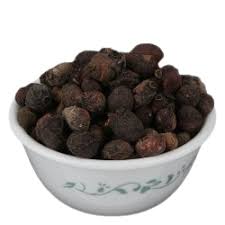
Amla Supplements: Are They Worth Taking
Amla, or Indian gooseberry, has been used for centuries in Ayurveda as a natural remedy for various ailments. Rich in vitamin C, antioxidants, and essential nutrients, it is known to support immunity, skin, hair, digestion, and overall vitality. However, with the increasing demand for convenience, many people opt for amla supplements instead of consuming fresh amla. This leads to an important question—are amla supplements truly effective, and are they worth adding to your wellness routine? In this article, we’ll explore the benefits, drawbacks, types, and science behind amla supplements to help you make an informed choice.
Long Description
- What Are Amla Supplements?
Amla supplements are concentrated extracts or powdered forms of the Indian gooseberry, processed and sold in various consumable formats. These include:
Capsules
Tablets
Powder
Juice
Gummies
The goal of these supplements is to provide the same nutritional value and health benefits as the fresh fruit, in a more convenient and accessible form.
- Nutritional Composition of Amla
Amla is known for its impressive nutritional profile. Just one small fruit contains:
20 times more vitamin C than an orange
Antioxidants like emblicanin A and B
Minerals such as calcium, iron, and phosphorus
Phytochemicals like flavonoids and tannins
These elements play a crucial role in maintaining and boosting overall health, which is why amla supplements are growing in popularity.
- Health Benefits of Amla Supplements
A. Strengthens the Immune System
Vitamin C, a powerful antioxidant found in high quantities in amla, boosts the immune system by enhancing the body’s defense mechanisms against infections.
B. Supports Hair Growth and Scalp Health
Amla is traditionally used to prevent hair fall, strengthen roots, and promote natural hair color. Supplements can help deliver these benefits from within.
C. Enhances Skin Health and Reduces Aging
With its antioxidant-rich profile, amla helps combat free radical damage, reduces signs of aging like wrinkles and pigmentation, and promotes clear, glowing skin.
D. Improves Digestive Health
Amla supports digestion by stimulating gastric juices, improving nutrient absorption, and relieving issues like constipation and acidity.
E. Helps in Blood Sugar Management
Studies have shown that amla can help regulate blood sugar levels, making it beneficial for those managing diabetes or insulin resistance.
F. Promotes Heart Health
Regular intake of amla supplements may help lower bad cholesterol (LDL) and triglycerides while increasing good cholesterol (HDL), supporting cardiovascular health.
G. Detoxifies the Liver
Amla is known for its detoxifying effects and its ability to improve liver function, which is essential for metabolism and cleansing the body of toxins.
- Forms of Amla Supplements and Their Uses
A. Amla Capsules and Tablets
These are widely used for convenience. They typically contain dried amla extract and are ideal for those seeking a simple, mess-free option.
B. Amla Powder
Powdered amla can be mixed into smoothies, warm water, or herbal teas. It offers flexibility in dosage and consumption style.
C. Amla Juice
Amla juice provides a quick, absorbable form of the nutrients. However, it’s essential to check for added sugars or preservatives in commercial products.
D. Amla Gummies
These are flavored supplements often used by children or individuals who dislike pills. However, the sugar content may be higher.
- Raw Amla vs. Amla Supplements: Which Is Better?
While raw amla is the most natural and nutrient-dense form, supplements are a viable alternative when:
Fresh amla is not available
You’re seeking higher concentration or specific health benefits
Your lifestyle demands convenience
Still, it’s essential to choose high-quality supplements without synthetic fillers or preservatives.
- Scientific Backing and Clinical Studies
Amla has been the subject of several studies confirming its health benefits. Key findings include:
A study published in the Indian Journal of Clinical Biochemistry demonstrated amla’s role in lowering cholesterol and managing blood sugar.
Research in the Journal of Ethnopharmacology highlighted its antioxidant and anti-inflammatory properties.
Clinical evidence also supports its effectiveness in improving liver function and enhancing skin elasticity.
These studies confirm that amla supplements are not just traditional remedies, but scientifically supported wellness tools.
- How to Choose the Right Amla Supplement
When purchasing an amla supplement, consider the following:
Organic certification
Third-party lab testing
Absence of artificial flavors, colors, or preservatives
Trusted Ayurvedic or herbal brands
Clear dosage instructions
Choosing the right supplement ensures maximum absorption and minimal side effects.
- Best Time to Take Amla Supplements
The timing of consumption can impact effectiveness:
Morning (empty stomach): Enhances digestion and detox
After meals: Helps with nutrient absorption and gut health
Before bed: Supports skin and hair regeneration overnight
Consistency is key to seeing long-term benefits.
- Precautions and Side Effects
Although generally safe, excessive or improper use of amla supplements may cause:
Nausea or stomach upset
Mild diarrhea or bloating
Low blood sugar in diabetic patients
Allergic reactions in rare cases
Always follow the recommended dosage and consult your healthcare provider if you’re on medication or managing chronic conditions.
- Who Should Consider Amla Supplements?
Amla supplements are especially beneficial for individuals who:
Frequently suffer from cold or low immunity
Experience hair fall, premature graying, or weak nails
Face digestive issues like constipation or indigestion
Are looking to improve skin clarity and glow
Have elevated blood sugar or cholesterol levels
Need detox support due to poor diet or stress
- Ayurvedic Perspective on Amla
In Ayurveda, amla is considered a Rasayana, or rejuvenator. It is known to balance all three doshas: Vata, Pitta, and Kapha. It is cooling in nature and promotes longevity, vitality, and overall well-being. The use of amla in formulations like Triphala and Chyawanprash is evidence of its holistic healing potential.
Conclusion: Are Amla Supplements Worth Taking?
Yes, amla supplements are worth considering for anyone seeking a natural, scientifically-backed way to improve immunity, hair, skin, digestion, and liver health. They provide many of the same benefits as fresh amla, especially when selected carefully and consumed consistently.
However, supplements should not entirely replace whole foods. Where possible, incorporate fresh amla into your diet and use supplements as a supportive tool for better health and wellness. Make sure to buy from reputable brands and consult a healthcare professional if you have pre-existing health conditions.












